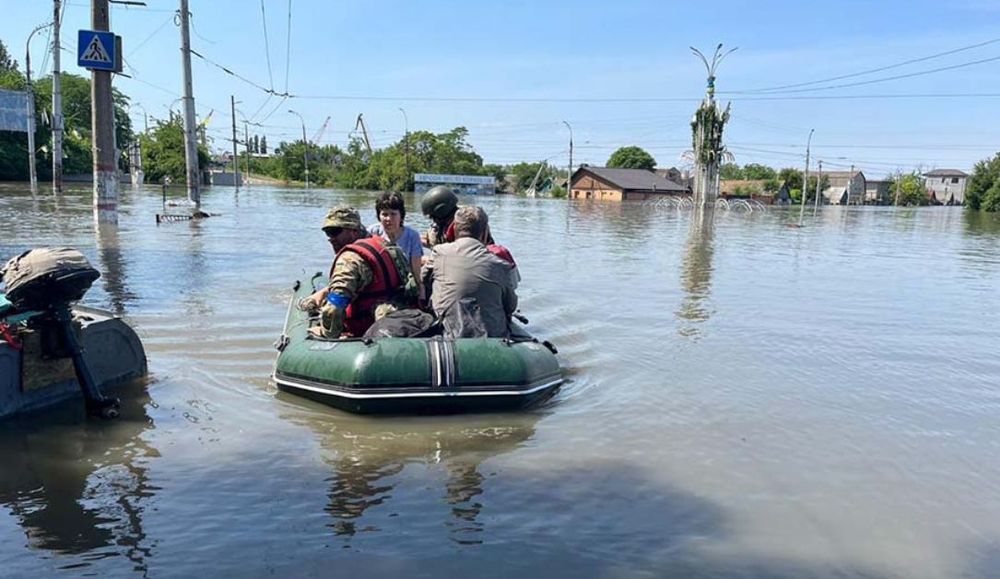Kremlin launches ‘aggressive’ propaganda campaign to blame Ukraine for Kakhovka Dam collapse, researchers say
Russian officials and diplomats have been coordinating an unusually organized and large-scale disinformation campaign to discredit reports that the nation is responsible for the June 6 collapse of the Nova Kakhovka Dam, according to a new study.
Disinformation scholars from the German Marshall Fund (GMF) studying one week of tweets about the incident found that Russia’s propaganda push around the Kakhovka dam’s collapse — which killed at least 45 people, created a humanitarian and environmental catastrophe in Ukraine, and gave Russia the upper hand in its efforts to control the region — marked one of the Kremlin’s “most aggressive overt messaging campaigns of the war,” they wrote in a report published Wednesday.
The new study found that in the week after the dam was destroyed, Russian diplomatic and media accounts tweeted “Kakhovka” or “dam” more than 1,300 times, earning nearly 200,000 retweets and more than 480,000 likes.
Experts say that while the dam’s collapse will not be enough to impede a Ukrainian offensive across the Dnipro River in Kherson Oblast this summer, it will slow down the operation by several weeks at a minimum, giving a significant advantage to Russian troops.
The GMF scholars who authored the report, Joseph Bodnar and Gabriele Sava, compared the dam data to state media and diplomatic tweets about the Bucha massacre and the Nord Stream pipeline bombing and found that Kremlin-linked accounts sent 9% more tweets about the dam explosion than the massacre and 30% more tweets than about the Nord Stream bombings.
Notably, however, the Kremlin’s push did not pay off in terms of engagement.
“It's not surprising that Russia blamed Ukraine for this — it’s surprising how much of an effort Russia made to do it and how little that effort paid off,” Bodnar said via email. “Kremlin-linked accounts launched one of their highest-volume propaganda drives of the war to convince the world that Ukraine blew up this dam, but they couldn’t generate the type of engagement that they normally draw.”
Bodnar speculated that one reason for Russia’s failure to change public sentiment could be tied to the fact that the Kremlin’s accusations aren’t very compelling, especially as evidence mounts against Russia.
Dam-related posts earned 37% fewer retweets than Bucha posts and 5% fewer retweets than Nord Stream posts, the report says. There was also a striking disparity in terms of likes, the report notes.
“It shows that while Russia can control the volume of its propaganda, it can’t make people listen,” the report said.
The New York Times reported last week that engineers and explosive experts aided the newspaper in an investigation of the dam’s collapse and found evidence that “clearly suggests the dam was crippled by an explosion set off by the side that controls it: Russia."
The Kremlin has repeatedly asserted that Ukraine caused the dam’s collapse, ostensibly because it wanted to distract attention from what Russia has called its failing counteroffensive.
GMF data also showed that the United States was the third most mentioned country in tweets referencing the dam, “which once again highlights how blaming the United States is central to almost all the Kremlin's information campaigns,” the report said.
Suzanne Smalley
is a reporter covering digital privacy, surveillance technologies and cybersecurity policy for The Record. She was previously a cybersecurity reporter at CyberScoop. Earlier in her career Suzanne covered the Boston Police Department for the Boston Globe and two presidential campaign cycles for Newsweek. She lives in Washington with her husband and three children.



